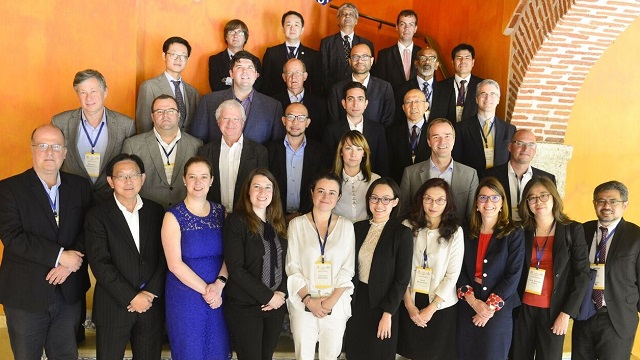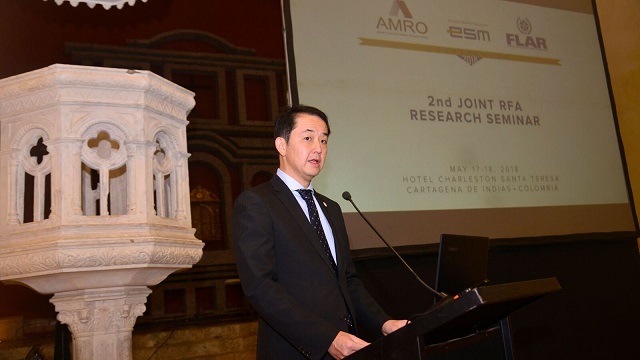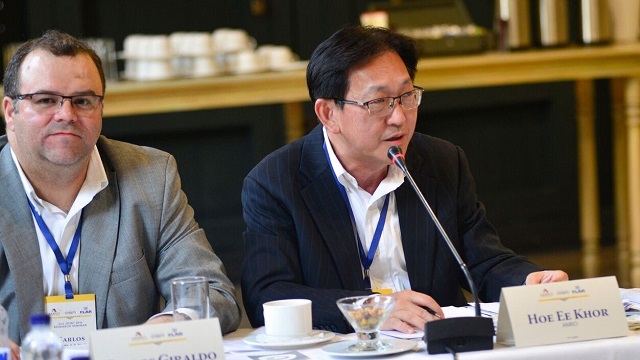The 2nd Joint Regional Financing Arrangement (RFA) Research Seminar
The 2nd Joint Regional Financing Arrangement (RFA) Research Seminar
Thursday and Friday, May 17-18, 2018
Contact: enquiry@amro-asia.org
Location: Santa Teresa Hotel, Cartagena de Indias, Colombia
The 2nd Joint Regional Financing Arrangement (RFA) Research Seminar co-organized by the ASEAN+3 Macroeconomic Research Office (AMRO), the European Stability Mechanism (ESM), and the Fondo Latinoamericano de Reservas (FLAR), will be held on May 17 and 18, 2018 in Cartagena de Indias, Colombia. The seminar is an annual event aiming at bringing academics and institutions together to discuss key issues pertaining to global and regional financial stability.
FLAR Executive President Mr José Darío Uribe and AMRO Deputy Director Mr Yasuto Watanabe will deliver the opening remarks. The event will comprise three sessions. The first session, led by ESM Chief Economist Mr Rolf Strauch will focus on the collaboration among the multiple layers of the Global Financial Safety Net. Chaired by AMRO Chief Economist Dr Hoe Ee Khor, the second session will discuss Design of conditionality and country ownership. The last session, led FLAR Director of Economic Studies Mr Carlos Giraldo, will discuss regional economic integration and the role of RFAs.
Among the discussants and speakers will be renowned academics and experts, representatives from international, regional and national organizations, and the private sector.
The event is by invitation only.
Program
Speakers
José Darío Uribe
Executive President, FLAR
Yasuto Watanabe
Deputy Director, AMRO
Hiro Ito
Portland State University
William W. Grimes
Boston University
David Marston
G20 Eminent Persons Group Secretariat
Ousmène Mandeng
London School of Economics
Gao Haihong
China Academy of Social Science
Gong Cheng
European Stability Mechanism
Thomas Marx
G20 IFA Working Group
Hoe Ee Khor
AMRO
Graham Bird
Claremont Graduate University and University of Surrey
Alexander Kentikelenis
Trinity College, Oxford University
Muhamad Chatib Basri
Former Minister of Finance, Indonesia
Roberto Junguito
Former Minister of Finance, Colombia
Bodo Ellmers
EURODAD
Petya Koeva Brooks
IMF
Nicola Giammarioli
European Stability Mechanism
José Antonio Ocampo
Central Bank of Colombia and Columbia University
Masahiro Kawai
University of Tokyo
Yisr Barnieh
Arab Monetary Fund
Alisher Mirzoev
Eurasian Fund for Stabilization and Development
Marie Houdart
European Commission
Cyn-Young Park
Asian Development Bank
Daniel Titelman
Economic Commission for Latin America and the Caribbean (ECLAC)
Rolf Strauch
Chief Economist and Member of the Management Board, ESM
Photos



